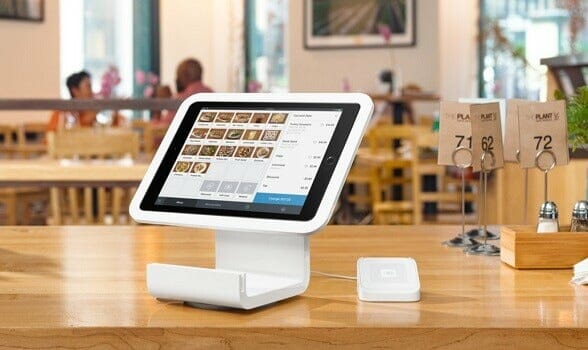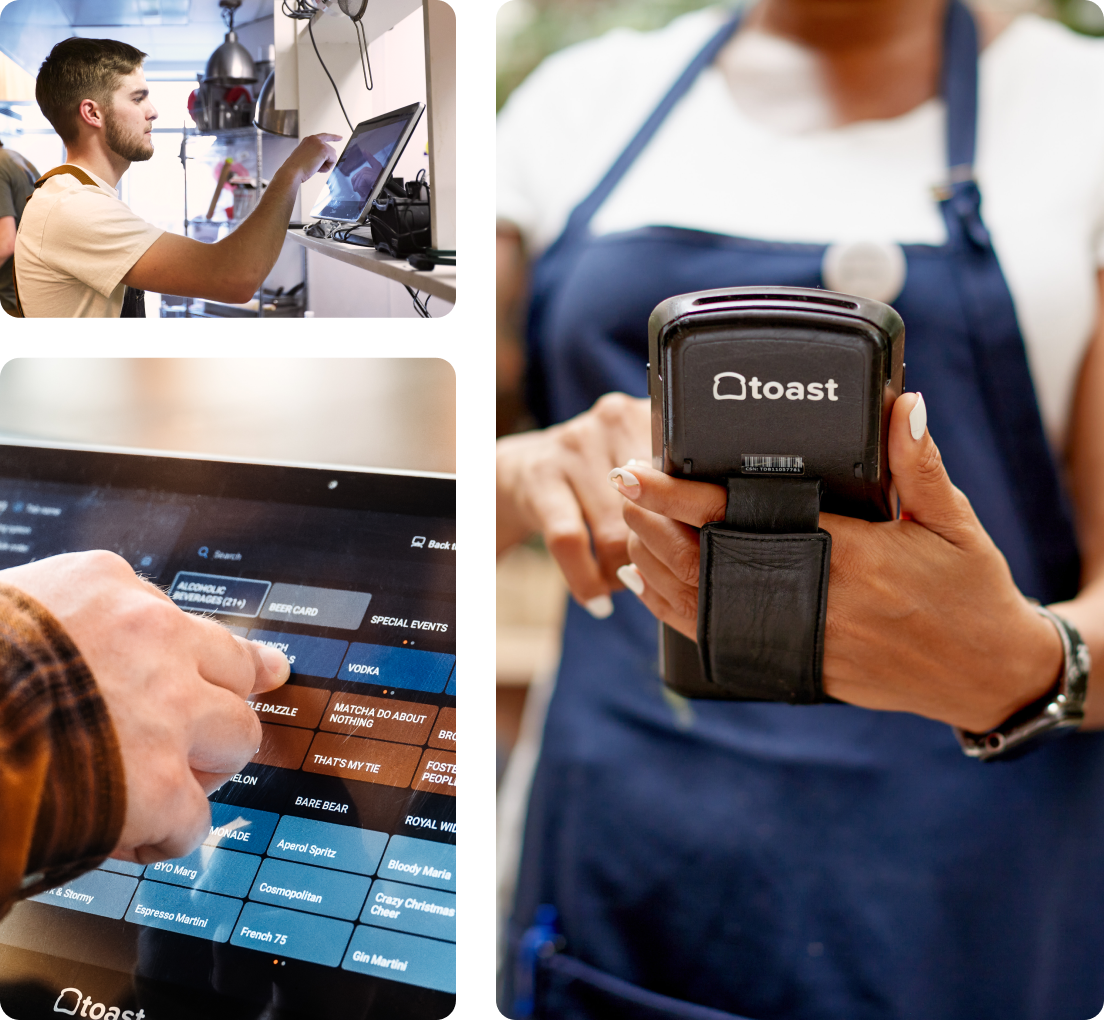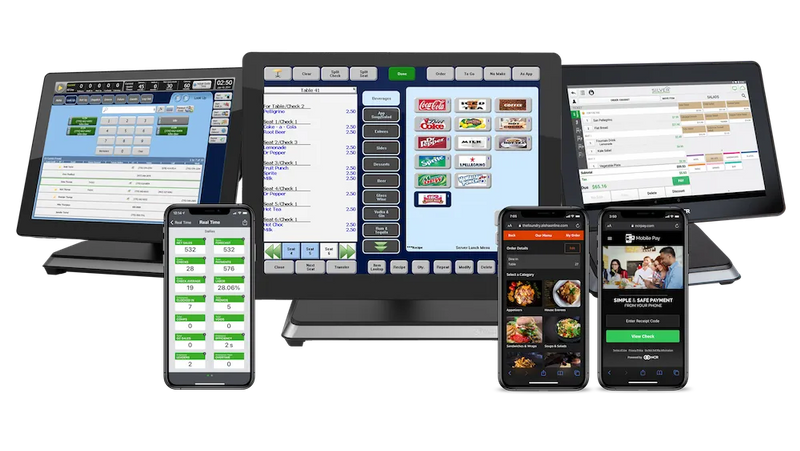Understanding the Value of POS Software in Modern Retail Operations
In today's retail landscape, the role of POS software has come to be progressively significant. These systems have actually transformed from standard money registers to complex devices that improve numerous facets of procedures. They not only streamline transactions yet additionally offer insights that can shape company strategies. Recognizing how these systems effect customer experience and stock administration is crucial for any retailer seeking to remain affordable. The effects of these advancements necessitate further exploration.
The Evolution of POS Software: From Purchase Processing to Comprehensive Solutions

Enhancing Customer Experience With Advanced POS Features

Simplifying Inventory Administration With Integrated POS Systems
Integrated POS systems play a crucial duty in improving stock administration by automating procedures that typically required considerable hands-on initiative. These systems enable retailers to track inventory degrees in actual time, eliminating inconsistencies that frequently develop from hand-operated supply counts. With features such as barcode scanning and automatic stock replenishment signals, organizations can keep optimal stock levels without overstocking or stockouts.Furthermore, integrated POS systems assist in exact projecting by assessing historical sales information, permitting stores to make educated purchasing decisions. This predictive capacity assists companies adjust to changing customer needs and seasonal fads extra effectively.Additionally, the centralization of inventory information throughout numerous sales networks improves visibility, making it possible for merchants to manage their stock much more successfully. Ultimately, the combination of POS systems into supply management streamlines operations, minimizes human error, and adds to boosted profitability.
Real-Time Sales Tracking and Coverage for Informed Decision-Making

Precise inventory administration prepares for efficient sales monitoring and reporting. Real-time sales tracking enables stores to check sales performance as it takes place, offering prompt insights right into customer buying patterns and patterns. This capacity enables organizations to react swiftly to changes in need, enhancing stock levels and reducing overstock or stockouts.Moreover, integrated POS systems promote the generation of comprehensive records, highlighting essential metrics such as sales by classification, time durations, and private items. Such coverage abilities equip merchants to make data-driven choices, recognizing effective strategies and areas requiring enhancement.
The Duty of POS Software in Client Relationship Administration
POS software plays a necessary role in enhancing consumer connection monitoring by making it possible for sellers to implement tailored advertising and marketing strategies. By evaluating client data, services can customize promos and communications to fulfill specific choices. Additionally, these systems assist in the advancement of enhanced loyalty programs that urge repeat company and reinforce customer interaction.
Personalized Advertising And Marketing Methods
As merchants increasingly seek to boost client commitment and engagement, personalized advertising and marketing methods have become a crucial component of effective consumer connection management. POS software plays a crucial function in this procedure by accumulating and evaluating consumer information, allowing retailers to tailor advertising efforts to private choices and purchasing habits. By leveraging understandings from purchase histories, merchants can develop targeted promotions and customized interactions that resonate with consumers, fostering a deeper connection. Additionally, the integration of POS software with client partnership monitoring systems enables for seamless monitoring of client communications, guaranteeing that advertising approaches stay relevant and prompt (Restaurant POS Software). This data-driven strategy not just enhances consumer fulfillment but likewise drives sales and motivates repeat business, solidifying the seller's market setting
Boosted Loyalty Programs
Sellers are progressively recognizing the relevance of loyalty programs in cultivating lasting customer connections and improving overall involvement. POS software plays a crucial function in the growth and monitoring of these programs, enabling merchants to track customer purchases, choices, and actions efficiently. By leveraging data analytics, organizations can produce personalized benefits and incentives that reverberate with private clients, consequently increasing participation in commitment programs. Additionally, POS systems allow seamless assimilation with mobile applications and digital platforms, promoting very easy accessibility to rewards and promotions. This not just boosts consumer contentment however look at this web-site additionally drives repeat service. Ultimately, POS software encourages stores to grow deeper links with their clientele, transforming periodic customers right into dedicated patrons with targeted and purposeful engagement methods.
Integrating POS Systems With Shopping Operating Systems for Omnichannel Success
To accomplish real omnichannel success, smooth assimilation in between point-of-sale (POS) systems and shopping systems is necessary. This combination allows retailers to merge their stock monitoring, guaranteeing that product accessibility is precisely reflected across both online and physical stores. Clients gain from a cohesive buying experience, where they can quickly change in between networks without running into discrepancies.Furthermore, incorporated systems assist in real-time information sharing, enabling services to examine client behavior and choices better. This data-driven strategy allows stores to customize advertising and marketing approaches and maximize stock degrees, eventually improving client complete satisfaction and driving sales.Additionally, the capability to procedure transactions throughout systems streamlines procedures, minimizing the danger of mistakes and enhancing general effectiveness. As stores increasingly published here take on omnichannel techniques, the combination of POS systems with shopping systems stays an important consider attaining lasting growth and preserving affordable benefit in the dynamic retail landscape.
Future Patterns in POS Technology and Their Effect On Retail Procedures
As retail procedures develop, future trends in POS technology are set to improve the landscape considerably. The rise of cloud-based solutions, innovations in mobile POS systems, and the advantages of AI combination are among the essential developments expected to boost efficiency and client experience. These advancements guarantee to enhance procedures and promote a much more dynamic retail atmosphere.
Cloud-Based Solutions Increase
With the enhancing reliance on technology, cloud-based POS solutions are transforming retail procedures by providing boosted flexibility and scalability. These systems enable retailers to accessibility real-time data from anywhere, facilitating much better decision-making and client service. By leveraging cloud infrastructure, organizations can minimize ahead of time prices connected with software and hardware setups while ensuring seamless updates and maintenance. Furthermore, cloud-based remedies sustain multi-location management, permitting merchants to integrate stock and sales across different electrical outlets effortlessly. This flexibility is vital in today's busy market, where consumer choices shift swiftly. As more merchants take on these options, they can expect improved operational performance and an extra receptive technique to market demands, eventually boosting customer contentment and commitment.
Mobile POS Innovations
The advancement of retail innovation continues to shape procedures, particularly with the increase of mobile POS innovations. These systems allow merchants to process deals anywhere within the shop, enhancing customer interaction and simplifying check out processes. Mobile POS options enhance supply administration by enabling instant accessibility to supply levels, assisting staff aid consumers more effectively. On top of that, they facilitate tailored shopping experiences with incorporated customer data and loyalty programs. As mobile devices come to be progressively innovative, stores are taking on features such as contactless payments and electronic receipts, additionally enhancing the purchasing trip. The shift towards mobile POS not just improves functional efficiency yet additionally aligns with the Going Here growing consumer choice for comfort, ensuring that sellers stay competitive in a rapidly advancing market.
AI Assimilation Benefits
AI assimilation represents a transformative jump in POS innovation, using merchants a myriad of benefits that enhance operational efficiency and client experience. By leveraging device discovering formulas, sellers can evaluate purchasing patterns and maximize stock administration, decreasing waste and stockouts. Furthermore, AI-powered analytics provide tailored advertising recommendations, making it possible for targeted promos that enhance client engagement and loyalty. In addition, chatbots and online assistants simplify customer support, allowing for quicker resolution of queries and enhancing the overall purchasing experience. Predictive analytics can also anticipate need fads, enabling smarter staffing and resource allocation. Ultimately, the integration of AI in POS systems empowers retailers to make data-driven choices, fostering an one-upmanship in an ever-evolving retail landscape.
Frequently Asked Concerns
What Are the Costs Related To Applying POS Software?
The costs linked with applying POS software can include software licensing fees, hardware costs, installment charges, training costs, and continuous upkeep. Each element contributes to the general financial investment essential for a successful execution.
Just How Can Little Retailers Take Advantage Of POS Systems?
Small stores can gain from POS systems through boosted purchase effectiveness, structured stock administration, and enhanced consumer insights. These systems allow far better decision-making, ultimately bring about enhanced sales and customer fulfillment in affordable markets.
What Hardware Is Required for a POS System?
A common POS system calls for necessary hardware elements, including a touchscreen display, cash money drawer, barcode scanner, receipt printer, and payment terminal. These components function with each other to promote efficient purchase processing and supply management for retailers.

Can POS Software Be Custom-made for Specific Retail Needs?
POS software can indeed be tailored to meet particular retail demands. Restaurant POS Software. This adaptability enables organizations to customize attributes, user interfaces, and reporting devices, enhancing operational performance and providing a more individualized experience for both staff and clients
Just How Protected Is Consumer Data in POS Systems?
The safety and security of client information in POS systems differs extensively. Lots of systems execute encryption, safe gain access to controls, and regular updates, however susceptabilities can still exist, requiring recurring vigilance and proactive actions from retailers to shield sensitive information.